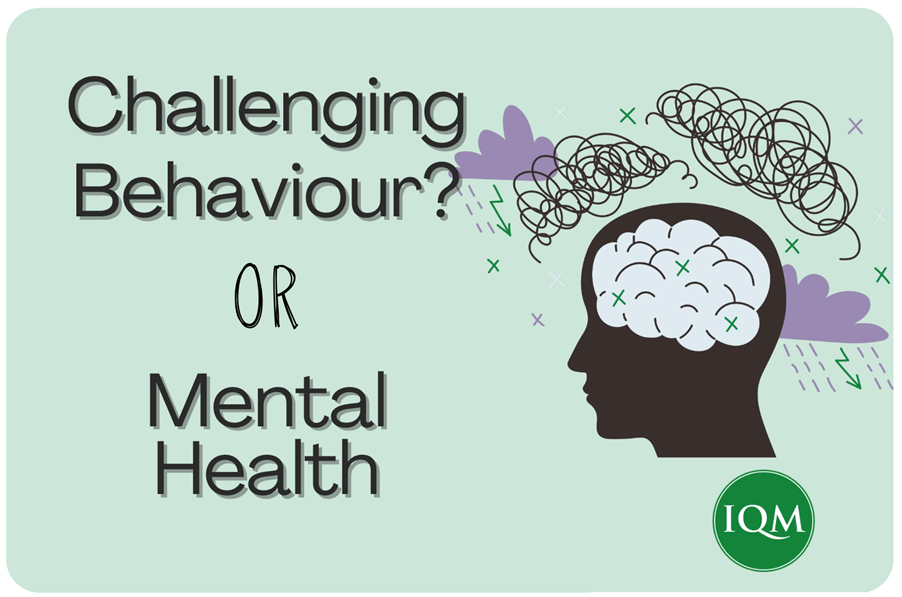Who is IQM?
IQM is the only national inclusion award in the UK. For over 20 years and in over 20 countries, schools, MATs and Local Authorities use the Inclusion Quality Mark to recognise exemplary inclusive practice.
Get in touch for your FREE school information pack today.
Significant Changes to Online Safety Bill
November 29, 2022

Measures which would have forced social media firms to remove legal but harmful material have been removed from the Government’s Online Safety Bill.
Any incentives for social media firms to over-remove people’s legal online content will be taken out of the Bill. Firms will still need to protect children and remove content that is illegal or prohibited in their terms of service, however the Bill will no longer define specific types of legal content that companies must address.
This removes any influence future governments could have on what private companies do about legal speech on their sites, or any risk that companies are motivated to take down legitimate posts to avoid sanctions.
New measures will also be added to make social media platforms more transparent and accountable to their users.
‘Triple Shield’
The changes will offer users a ‘triple shield’ of protection when online: social media firms will be legally required to remove illegal content, take down material in breach of their own terms of service, and provide adults with greater choice over the content they see and engage with.
Parents and the wider public will benefit from new changes to force tech firms to publish more information about the risks their platforms pose to children so people can see what dangers sites really hold.
Firms will be made to show how they enforce their user age limits to stop kids circumventing authentication methods and they will have to publish details of when the regulator Ofcom has taken action against them.
Digital Secretary Michelle Donelan explained, “Unregulated social media has damaged our children for too long and it must end. I will bring a strengthened Online Safety Bill back to Parliament which will allow parents to see and act on the dangers sites pose to young people. It is also freed from any threat that tech firms or future governments could use the laws as a licence to censor legitimate views.
“Young people will be safeguarded, criminality stamped out and adults given control over what they see and engage with online. We now have a binary choice: to get these measures into law and improve things or squabble in the status quo and leave more young lives at risk.”

Need to Protect Children
This announcement refocuses the Online Safety Bill on its original aims: the pressing need to protect children and tackle criminal activity online while preserving free speech, ensuring tech firms are accountable to their users, and empowering adults to make more informed choices about the platforms they use.
It follows confirmation that the Bill will include new measures to make significant changes to the UK’s criminal law to increase protections for vulnerable people online by criminalising the encouragement of self-harm and the sharing of people’s intimate images without their consent.
To make sure the Bill’s protections for adults online strike the right balance with its protections for free speech, duties relating to “legal but harmful” content accessed by adults will be removed from the legislation and replaced with the consumer-friendly ‘triple shield’.
The Bill will instead give adults greater control over online posts they may not wish to see on platforms. If users are likely to encounter certain types of content – such as the glorification of eating disorders, racism, anti-semitism or misogyny not meeting the criminal threshold – internet companies will have to offer adults tools to help them avoid it. These could include human moderation, blocking content flagged by other users or sensitivity and warning screens.
The legal but harmful measures will be replaced with new duties which strengthen the Bill’s free speech requirements on major online platforms to make them more accountable for their policies. It will explicitly prohibit them from removing or restricting user-generated content, or suspending or banning users, where this does not breach their terms of service or the law. In addition, firms will need to have clear, easy to understand and consistently enforced terms of service.
Duty to Protect
It comes as new polling from Ipsos reveals that 83 per cent of people think social media companies should have a duty to protect children who are using their platforms (only 4 per cent disagree). Eight in ten people (78 per cent) want social media companies held accountable for keeping underage children off their platforms (only 7 per cent disagree).
There is overwhelming public backing for action. Eight in ten people (81 per cent) think the government should make sure social media companies protect children when they are online and 77 per cent think social media companies should be punished if they don’t protect children.
The Bill is due to return to Parliament next week. The first amendments have been tabled to the Bill in the Commons for Report Stage on 5 December. Further amendments will be made at later stages of the Bill’s passage.
As well as making larger tech companies publish a summary of their risk assessments concerning the dangers their platforms pose to children, other moves to boost transparency and accountability include giving Ofcom a new power to require platforms to publish details of enforcement action it takes against them.
Another set of amendments will boost protections for women and girls online by adding the criminal offence of controlling or coercive behaviour to the list of priority offences in the Bill. This means platforms will have to take proactive steps, such as putting in measures to allow users to manage who can interact with them or their content, instead of only responding when this illegal content is flagged to them through complaints
In addition, the Victim’s Commissioner, Domestic Abuse Commissioner and Children’s Commissioner will be added as statutory consultees in the Bill, meaning Ofcom must consult with each when drafting the codes tech firms must follow to comply with the Bill.
Find out more about the IQM Inclusive School Award
If your school is interested in obtaining the IQM Inclusive School Award or you wish to talk to a member of the IQM team please telephone:
028 7127 7857 (9.00 am to 5.00 pm)
or email: info@iqmaward.com for further details.
Want more information on the IQM Award? Click here to request your free IQM information pack
Other Posts

About IQM
The only national award for inclusion in the UK, IQM has been committed to recognising exemplary inclusive schools for over 20 years and in over 20 countries around the world. The three awards allow schools and organisations to celebrate their inclusive practice against nationally recognised framework.
Site Links
© 2026 Inclusion Quality Mark | website developed & cared for by digidoda


